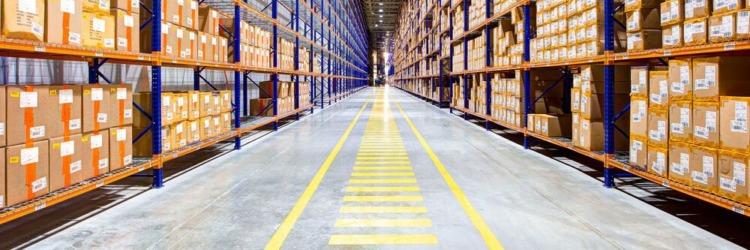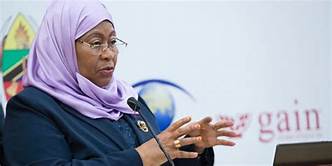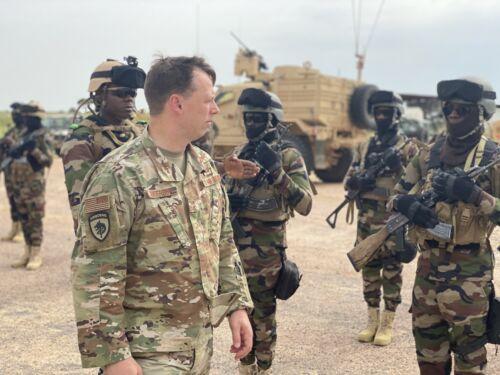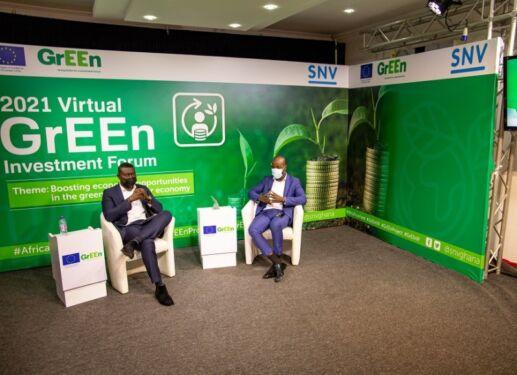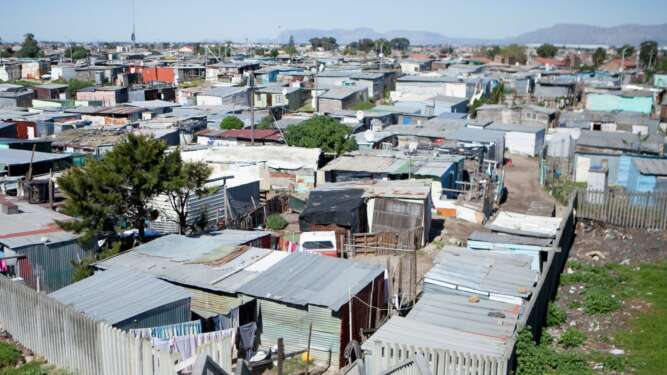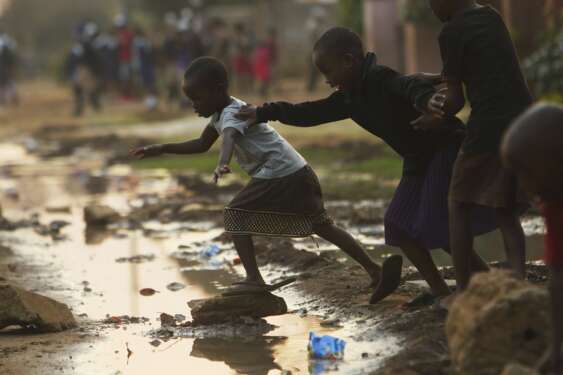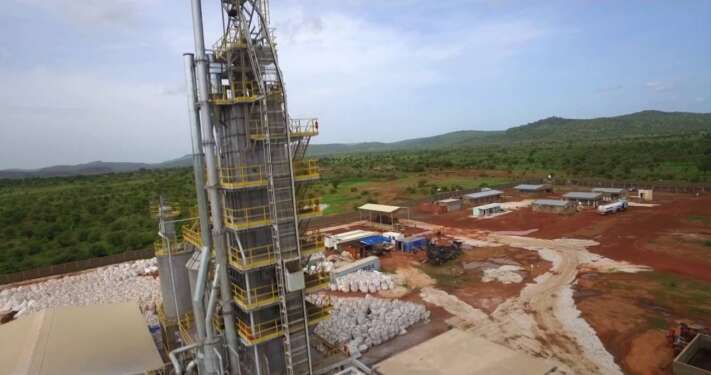- Africa’s $824Bn debt, resource-backed opaque loans slowing growth — AfDB
- LB Investment brings $1.2 trillion portfolio display to AIM Congress spotlight
- AmCham Summit kicks off, setting course for robust future of US-East Africa trade ties
- Why the UN is raising the red flag on the UK-Rwanda asylum treaty
- Portugal’s Galp Energia projects 10 billion barrels in Namibia’s new oil find
- Wärtsilä Energy offers tips on how Africa can navigate energy transition and grid reliability
- Powering Africa: Africa’s Path to Universal Electricity Access
- Global investment trends at AIM Congress 2024: a spotlight on the keynote speakers
Browsing: AfDB
The government of Tanzania is working on a blue print to increase sell of the country’s agro-produce by setting up bonded warehouses in foreign markets in a bid to boost sells.
The bonded warehouses will for starters be piloted in China and Saudi Arabia and are expected to ease access to markets for agro-produce.
Well first things first. What is a bonded warehouse? These are building or other secured areas in which dutiable goods may be stored or even manufacturing without payment of duty.
Bonded warehouses provide specialized storage services such as deep freezers for perishables as well as bulk liquid storage. They also allow for commodity processing and make up an integral part of the global supply chain by giving the importer opportunity to bring in raw goods, process, package and then sell the final product all under one roof with no duty charged.
Further still, bonded warehouses may …
“The change of tone ushered in by President Samia Suluhu Hassan over the last month could indicate a welcome to a whole new economic direction in Tanzania’,” remarked Peter Leon, Partner and Africa Co-Chair, Herbert Smith Freehills
Investors have been wary of dipping their feet in Tanzania’s investment pool, more so investors in the extractive industries. In March 2017, a total ban on the export of unprocessed mineral concentrates and ores was instated.
Just four months later, in July 2017, after six days of deliberation, three new laws assented. The new laws gave significant power to the government, empowering it to control the extractives sector autonomously.
The three laws that were altered are:
- The Natural Wealth and Resources Contracts (Review and Renegotiation of Unconscionable Terms) Act, 2017 (Unconscionable Terms Act);
- The Natural Wealth and Resources (Permanent Sovereignty) Act, 2017 (Permanent Sovereignty Act); and
- The Written Laws(Miscellaneous Amendments) Act, 2017 which
It is early January, the World is still celebrating the new year , so is Somalia, the Horn of Africa. Two F-35B, single pilot airstrike jets strike at al-Shabaab operatives killing three members of the terrorist group, reported the U.S. Africa Command, AFRICOM.
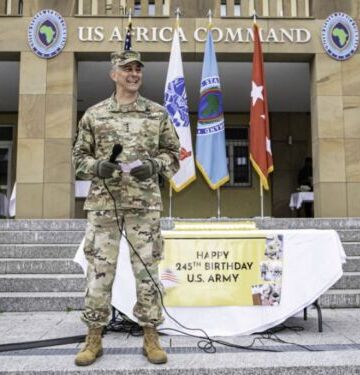
An African Defense Post Abroad
The United States Africa Command (AFRICOM), is a joint military command body of the US for African military response against mainly terror threats.
However, AFRICOM is nowhere near Africa, on the contrary, it is across the seven seas in Europe, headquartered at Kelley Barracks, Stuttgart, Germany. Now Africa wants the command post brought closer to the continent, after all it was formed to address terror threats on the continent was it not?
During its formation in 2007, the White House announced that AFRICOM “will strengthen our security cooperation with Africa and create new opportunities to bolster the capabilities of our partners in …
The future of Africa is fenced around its ability to utilize renewable energy potential. Harnessed effectively, Africa stands to become the next world powerhouse and take over energy production once and for all.
In this context, the African sun has plenty of potential to transform the continent’s energy generation landscape. Africa is endowed with plenty of renewable energy, hydropower and natural gas.
The International Energy Agency points to Africa as a region harbouring nearly 17 per cent of the global population but it only holds four per cent of global power supply investment. …
Barely a month after the tragic and unexpected death of Tanzania’s outspoken and visionary leader Dr. John Magufuli, the country has gone ahead and inked an oil pact with neighbouring Uganda.
The move puts a lid on speculations of how the country’s first woman President Mama Samia Suluhu Hassan will handle duties of the top office. The new president, who was former vice president under the Magufuli regime, sat with her Ugandan counterpart Yoweri Museveni and together shook hands for French Total E&P and China’s CNOOC and signed key agreements for the East African Crude Oil Pipeline (EACOP).…
Sounding a note of optimism at the European Union-Africa Green Investment Forum on Friday, African Development Bank (www.AfDB.org) President Dr. Akinwumi A. Adesina reminded global audiences of the continent’s vast opportunities for green growth.
“Africa is a huge market offering incredible opportunities. The recovery pathway offers enormous opportunities. Recovery must be green and build climate resilience. Recovery must boost green investments,” Adesina said in a keynote address.
The hybrid forum was convened by Portugal and the European Investment Bank to mobilize private and public capital towards the green transition in Africa. The high-level event brought together leading government and business figures, international and development financial institutions, civil society and academia.
Adesina identified energy, agriculture and infrastructure as key areas of investment potential for a post-Covid-19 recovery in Africa. With abundant solar, wind, hydro and geothermal energy resources, Africa’s energy transition alone presents a $100 billion per year investment opportunity, …
The African Development Bank (www.AfDB.org) hosted its first virtual business opportunities seminar (BOS) of 2021 on 6 and 7 April.
The BOS seminars offer a one-stop shop for companies, civil contractors, manufacturers, consultants, and suppliers from the Bank Group’s regional and non-regional members seeking to provide goods and services to projects or to the Bank.
Held virtually as a result of the ongoing Covid-19 pandemic, delegates were informed about the Bank’s strategy for supporting economic growth, its priority areas, rules and procedures for project and corporate procurement, and ongoing public and private sector operations.
During the sessions staff discussed the sectors that offer opportunities for partners and suppliers: climate change; infrastructure, cities and urban development; industries and trade; finance and SMEs; agriculture; health, human capital, youth, and skills development.
“The Bank’s 2021 Business Opportunities Seminar was an impressive learning experience and an open door to interact virtually with …
Africa is expected to recover from its worst recession in half a century and reach 3.4 per cent growth in 2021.
This growth which is expected to defy the effects of increasing debt burden and the Covid-19 pandemic does not however promise to wipe out poverty but instead an estimated 39 million more Africans could possibly slip into extreme poverty this year in addition to the about 30 million who were pushed into extreme poverty in 2020 as a result of the pandemic.…
More than half of the population in 34 out of 38 sub-Saharan Africa nations lack access to basic handwashing facilities. …
In August 2020, Mali had a bloodless coup carried out by military officers leading to the country’s President Ibraham Boubacar Keita and Prime Minister Boubou Cisse resigning.
The coup came after months of protests against Keita’s administration.
News like this has dominated the country’s narrative but little has been said about its economy and growth.
According to the African Development Bank (AfDB) Group, Mali’s economy has remained resilient despite the security crisis. The West African country recorded a 5 per cent real GDP growth in 2019 driven by favourable gold and cotton production. It had a budget deficit of 3.1 per cent of GDP and 0.4 per cent inflation while public debt stood at 35.5 per cent of the GDP at the end of 2018.…





